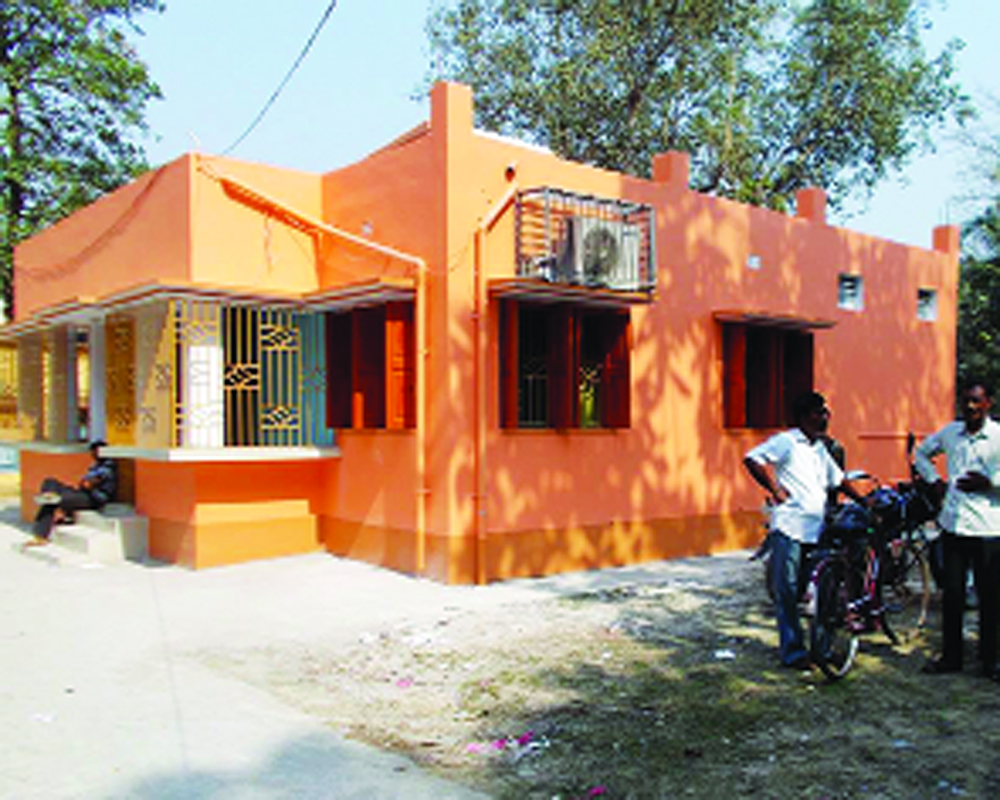An inclusive process of planning and programme deployment is the only way to ensure that the most vulnerable have access to benefits
When we met Rama Krishna, our heart was broken. His wife was in the hospital and he needed money for her treatment. Krishna and his family were enrolled for health benefits under the Building and Other Construction Workers (regulation of employment and conditions of service) Act, 1996. However, the paperwork he needed to avail the benefits was too cumbersome. He needed his Aadhaar card, hospital bills, proof of work, marriage certificate, details of any dependents and so much more. Finally, he could not convince his union leader to give him proof of his last salary slip. And thus, he could not avail the benefits. He needed the money immediately for treatment. While we were able to help him out then, we wondered how many more Krishnas were out there. Krishna's situation pointed to a systemic issue where the willingness to want to deliver basic services remains but a top-down program design is becoming a hindrance in accessing these programs.
From loan waivers to scholarship for marginalized communities, there is no dearth of programs that serve vulnerable populations. However, with the programs being designed by those sitting in the State and national Capitals often means a disconnect to reality. The result is that these programs become hard to operationalize and ultimately do not yield intended benefits. Therefore, it is critical to work with communities to develop solutions, provide local talent who can help design and deliver on problems and create a culture of bottom-up planning.
An inclusive process of planning and program deployment is the only way to ensure that the most vulnerable have access to benefits.
Consider for example the District Minerals Trust Fund that uses the cess of mining companies in to address community needs. Districts who have been adversely affected by mining have complete discretion on how they want to use resources for hyperlocal needs. In Ramgarh and Chattra, the administration conducted Gram Sabhas and local stakeholder meetings and recognized the need for more sustainable and high paying jobs than those offered by the mining industry.
Thus, rather than look for jobs with skills that might not be easily available, these districts brought in green and renewable opportunities like solarization of agriculture sector and created related jobs. The result is higher paying local jobs with sustainability. A culture of identifying local needs with the flexibility of using funds has allowed these districts to create hyperlocal solutions. Rather than routing funding through schemes, there is significant merit in providing discretionary funds for districts as well.
Resources are often not enough. It is important to match them with personnel on the ground who can provide feedback about community condition. Andhra has designed the village volunteer program with similar intentions in mind. Every 100-200 households have a young person helping them with access to programs and benefits. When lockdown was affecting most of the country with no one being able to access banks, government offices, etc. village volunteers accessed this pressing gap and were mobilized to withdraw the cash and deliver the amount to each household. The money became the lifeline for most families who continue to remain dependent on pensions and social welfare to ensure a functioning household. It is critical to have people within communities who can identify errors and work with the government to help overcome them. While in some situations local NGOs are stepping in to provide needed support, there needs to be systems and human capital to do so.
Finally, in order to ensure such a model comes into play, it is important to have a culture of appreciating the local opinion. The second wave of the covid pandemic highlighted the importance of letting communities decide the most appropriate response. In the process, models emerged of how districts were able to mobilize resources and talent to bridge this gap. We saw districts with a strong agricultural belt being willing to keep mandis open over the weekend. Whereas others choosing to go in to complete lockdown. The diversity within India demands for each community to adopt to local needs. There needs to be a strategic shift toward providing much assistance and insights to districts.
Only when we empower our local administrations with the resources to take independent decisions can we design and implement effective solutions. Otherwise, the stories of more Rama Krishnas will continue to emerge, plagued by systemic issues.
(Bhattacharya is the CEO of Swaniti Initiative. Lavu is a Member of the Lok Sabha. The views expressed are personal.)


























